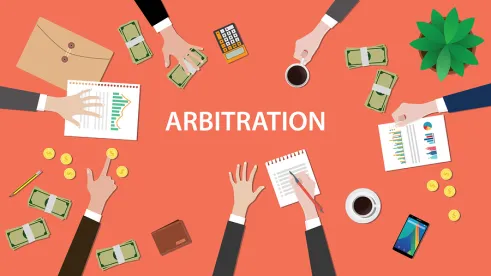In a decision that may significantly increase access to domestic discovery in foreign arbitration proceedings, the United States Court of Appeals for the Sixth Circuit ruled on September 19 that courts may order individuals and entities within the United States to produce documents and provide testimony for use in private commercial arbitrations abroad. Circuit courts considering the issue previously have held that the statute at issue, 28 U.S.C. § 1782, permits discovery in the United States only for use in governmental or quasi-governmental tribunals, and not disputes pending before private arbitral panels.
The Sixth Circuit’s decision is at odds with this precedent, and paves the way for potential resolution by the Supreme Court. In the meantime, the decision means that broad discovery, including access to electronically stored information maintained by businesses in the United States, as well as depositions of officers and directors, may be available for use in private foreign arbitrations. Accordingly, practitioners will be well-served to keep § 1782 in mind when drafting arbitration agreements concerning disputes before foreign arbitral forums.
Section 1782, titled “Assistance to foreign and international tribunals and to litigants before such tribunals,” generally provides that a federal district court may require a person within the district to provide documents or testimony for use in a “foreign or international tribunal.” Although the United States Supreme Court has not yet defined that term, the Second and Fifth circuit courts of appeal have concluded that “foreign or international tribunal” refers only to governmental arbitral tribunals, conventional courts and other state-sponsored adjudicatory bodies. Thus, under those courts’ holdings, § 1782 may not be used to obtain discovery in the United States for use in private commercial arbitrations.
The Sixth Circuit departed from this precedent last week in Abdul Latif Jameel Transportation Company Limited v. FedEx Corporation. In that case, the appellant, ALJ, relied upon § 1782 to seek discovery from FedEx in the United States for use in private arbitration pending in Dubai against FedEx International, a subsidiary of FedEx. The district court denied the application on the ground that the arbitration — before the Dubai International Financial Centre-London Court of International Arbitration — was a “privately contracted-for commercial arbitration” and thus did not fall within the definition of “foreign or international tribunal.”
After conducting an extensive analysis of the meaning of the word “tribunal,” including with reference to dictionaries, historical usage by legal writers and courts, as well as use of the word in other statutes, the Court concluded that “the text, context, and structure of § 1782(a) provide no reason to doubt that the word ‘tribunal’ includes private commercial arbitral panels established pursuant to contract and having the authority to issue decisions that bind the parties.” In so holding, the court rejected FedEx’s reliance upon the Supreme Court’s 2004 decision in Intel Corp. v. Advanced Micro Devices, Inc., which did not directly address the meaning of “foreign tribunal,” and also observed that it was “unpersuaded” by the contrary reasoning of the Second and Fifth circuits.
The court also refused to accept a host of policy-based arguments raised by FedEx, such as that applying § 1782 to private arbitrations would provide broader discovery than that available to parties in private domestic arbitrations under the Federal Arbitration Act, or that the Sixth Circuit’s interpretation would defeat a principal purpose of arbitration: saving time and money associated with civil litigation. The court noted that achieving a better policy outcome is a task for Congress, not the courts, and that “even if we were inclined to countenance policy arguments, we would not agree that they crown FedEx Corp’s reading of § 1782(a) as the correct one.”
Given the circuit split created by FedEx, it is possible that the United States Supreme Court will grant certiorari to provide uniformity. Until then, parties to foreign private arbitrations now have a powerful tool to obtain discovery from individuals and entities in the United States. On the other hand, parties wishing to avoid the burden of such discovery should include limits on the use of § 1782 by carefully crafting the language of foreign arbitration agreements.




 />i
/>i

